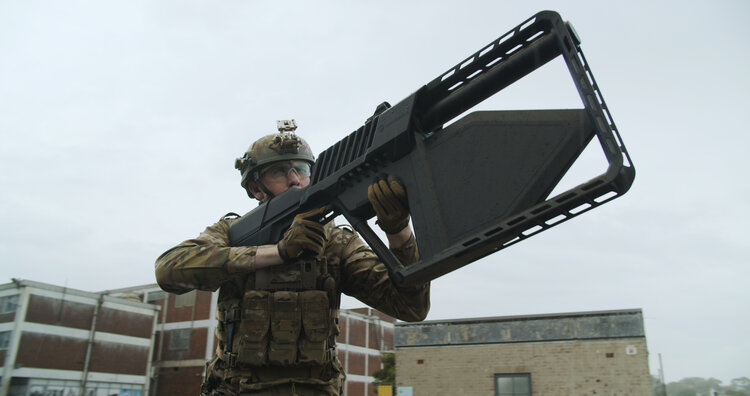ASX-listed defence tech company Droneshield has been picked to join a Department of Defence panel that it hopes will get it signed onto some top secret government contracts.
The Intelligence, Surveillance, Reconnaissance and Electronic Warfare (ISREW) Standing Offer taps companies to test and develop mission support systems directly with Defence, opening the possibility to work on projects that aren’t openly tendered.
The announcement is another piece of much needed positive news for Droneshield following the publication of its half-yearly report early last week which painted a grim picture of its finances.
For the first six months of 2022, Droneshield’s revenues dropped by 45 per cent down to $3.6 million while its losses shot up nearly 1,000 per cent to $4.9 million.
The company posted a loss of $1.17 per share, up from 12c per share for the same period last year.
Droneshield’s share price closed at 17c on Wednesday leaving the company with a $71 million market capitalisation.
Earlier this month Droneshield was awarded a $2 million European government contract for its fixed site Dronesentry product – a small mobile tower that uses AI to detect and respond to autonomous unmanned systems like quadcopter drones.
Droneshield CEO Oleg Vornik said it was the company’s biggest European contract to date and highlights the growing need for products that can target drones.
“This order continues our progression from developing the tech, to smaller sales, to repeat smaller size, to presently realising larger contracts,” Vornik said in a statement.
“There is a substantial near-term sales pipeline in place, and we are pleased to start converting it into contracts.”
Vornik’s company is hoping a ongoing move toward a software-as-a-service (SaaS) product model, which includes a machine vision model to detect small hard to see drones in real-time, will provide greater returns than its hardware offerings.
Among Droneshield’s most recognisable hardware products are the futuristic-looking Droneguns that can disrupting a drone’s radio signals causing it to fly back to its operator or attempt a safe landing, and interrupting video streams.
The need for handheld and fixed site anti-drone solutions was on show in late August when video emerged of Taiwanese soldiers throwing rocks at a Chinese drone that casually flew up to their guard post.
Where the threat of China invading Taiwan and ongoing war in Ukraine may unsettle civilians, geopolitical uncertainty has defence contractors like Droneshield licking their lips.
Listed among the company’s “key highlights” in its half yearly report was what it described as a “highly favourable macro environment for DroneShield due to increased macroeconomic uncertainties [with] war in Ukraine demonstrating extensive use of small drones by both sides, and rapidly increasing defence budgets globally including by the Australian Government”.
Droneshield estimates the counterdrone market is now worth some $14 billion.
Credit: Source link


Comments are closed.